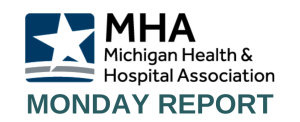The National Rural Health Association (NRHA) recently announced two new funding opportunities to support initiatives that will improve healthcare access in rural communities.
The Rural Utilities Service, a Rural Development agency of the United States Department of Agriculture (USDA), will accept applications for the USDA Rural eConnectivty Program starting March 22 until April 22. This program offers loans and grants to support the construction, improvement or acquisition of facilities and equipment that are necessary to expand broadband internet service in rural areas. Funding opportunities for eligible applicants will vary based on the needs of each Proposed Funded Service Area.
Additionally, the HRSA Rural Communities Opioid Response (RCORP) Funding Program is currently accepting applications through May 6 to expand access to treatment for substance use disorder (SUD) in rural communities. Throughout this four-year project, grantees are eligible to receive up to $750,000 per year. Funding is intended to support the establishment or expansion of the SUD workforce, collaboration with social services for long term recovery support, and sustainability of programming beyond the grant period. Public, private, non-profit, for-profit groups, tribal government, educational institutions and faith-based organizations are encouraged to apply. Applicants must be a part of a network involving at least four entities, with at least two located in HRSA-designated rural service areas.
Eligible MHA members are encouraged to consider applying for these funding opportunities to expand and enhance healthcare services in rural communities.
Members with questions may contact Lauren LaPine at the MHA.


 MHA Podcast Explores Workplace Violence Resources for Michigan Hospitals
MHA Podcast Explores Workplace Violence Resources for Michigan Hospitals Economic Indigestion for U.S. Healthcare is Reality: Here’s What it Means in 2024
Economic Indigestion for U.S. Healthcare is Reality: Here’s What it Means in 2024